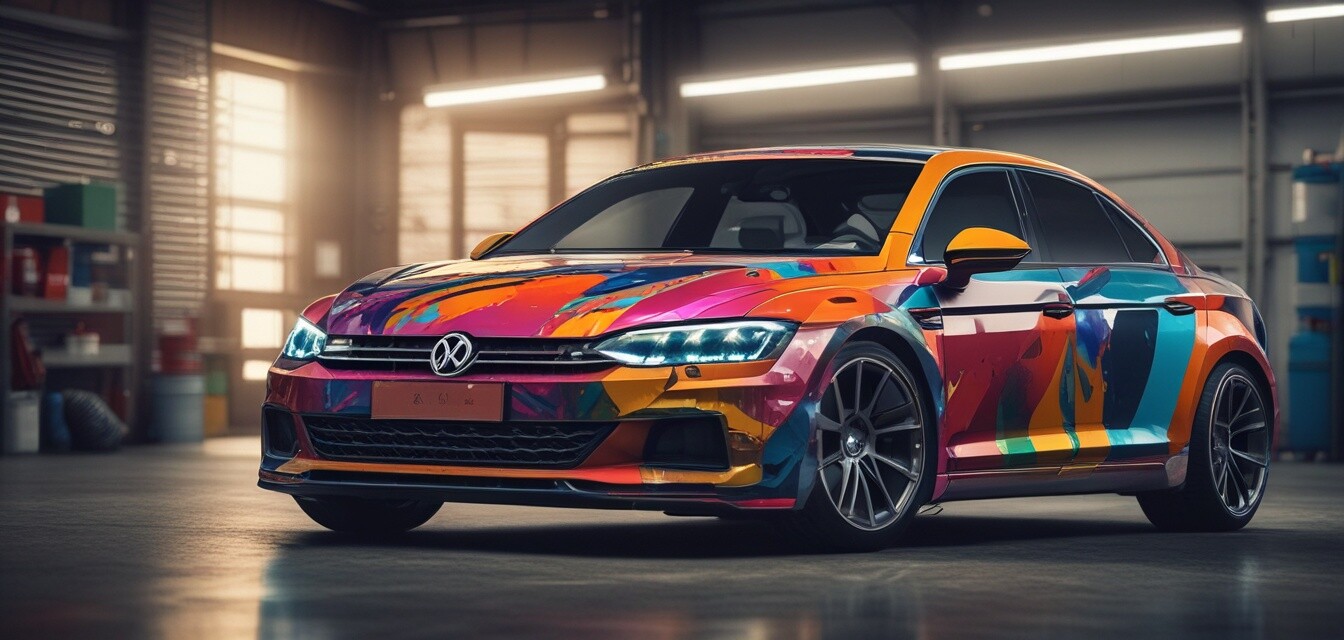
How to Customize Your VW's Exterior with Vinyl Wraps
Key Takeaways
- Vinyl wraps are a great way to personalize your VW's exterior.
- Choose the right tools and materials for a smooth application.
- Consider design options that complement your VW's style.
- Follow proper techniques to achieve a professional finish.
- Regular maintenance can prolong the life of your vinyl wrap.
Customizing your Volkswagen's exterior with vinyl wraps is an excellent way to give your ride a unique look while protecting the original paint. Whether you're aiming for a bright new color or intricate designs, this DIY guide covers everything you need to know, including techniques, design options, and tools required for a successful application.
What is vinyl wrapping?
Vinyl wrapping involves applying a layer of vinyl film to your car's exterior. This technique allows for changing the color or finish of your vehicle without permanent alterations. Vinyl wraps come in many colors, textures, and finishes, making them a versatile option for customization. For more information on enhancing your car, check out our Buying Guides section.
Benefits of using vinyl wraps
- Cost-effective compared to a paint job
- Removable without damaging the original paint
- Ability to change looks frequently
- Protection against UV rays, scratches, and minor dents
- Customizable with graphics and patterns
Tools and materials needed
Before beginning your wrapping project, gather the necessary tools to make the process easier:
| Tool/Material | Purpose |
|---|---|
| Vinyl wrap roll | Main material for customization |
| Application squeegee | To smooth out bubbles and wrinkles |
| Heat gun | To mold the vinyl around curves |
| Utility knife | To trim excess vinyl |
| Cleaning solution | To prepare the surface |
| Microfiber cloth | To remove dirt and dust |
| Masking tape | To outline sections to be wrapped |
Choosing the right vinyl wrap
Not all vinyl wraps are created equal. Consider the following factors when selecting your vinyl:
- Finish: Choose from matte, glossy, or satin finishes based on your style preference.
- Durability: Look for high-quality vinyl that can withstand the elements.
- Texture: Some wraps offer unique textures like carbon fiber or brushed metal.
Preparation steps
Preparing your VW for vinyl wrapping is crucial for a successful application:
- Clean the surface: Use a cleaning solution and microfiber cloth to remove dirt and grease.
- Remove any parts: Take off handles, emblems, and any removable trim to make wrapping easier.
- Outline your wrap areas: Use masking tape to mark sections for a more precise application.
Application techniques
To achieve a professional look, follow these steps for applying the vinyl wrap:
- Cut the vinyl: Measure and cut the wrap slightly larger than the area you are covering.
- Heat the vinyl: Use a heat gun to soften the vinyl for easier handling.
- Position the vinyl: Align the wrap with your predefined outlines and press it onto the surface.
- Squeegee: Starting from the center, use the application squeegee to push air bubbles outwards.
- Trimming: Carefully trim away excess vinyl using a utility knife.
- Final heating: Apply heat again to secure the edges and contours.
Maintenance tips
To keep your vinyl wrap looking great, consider these maintenance tips:
- Avoid automatic car washes that use brushes; opt for hand washing instead.
- Use a mild detergent and soft cloth to clean the surface.
- Apply a protective sealant to enhance its durability and shine.
Pros
- Affordable customization option
- Reversible change compared to paint
- Protects the car’s original paint
Cons
- Can be tricky without proper techniques
- Vulnerable to harsh elements if not maintained
- May fade over time without proper care
Conclusion
Vinyl wraps offer an exciting way to customize your VW and express your individuality. By following the steps outlined in this guide and maintaining your wrap properly, you can achieve great results that will make your car stand out. For more tips and projects, visit our How-To Guides section.
